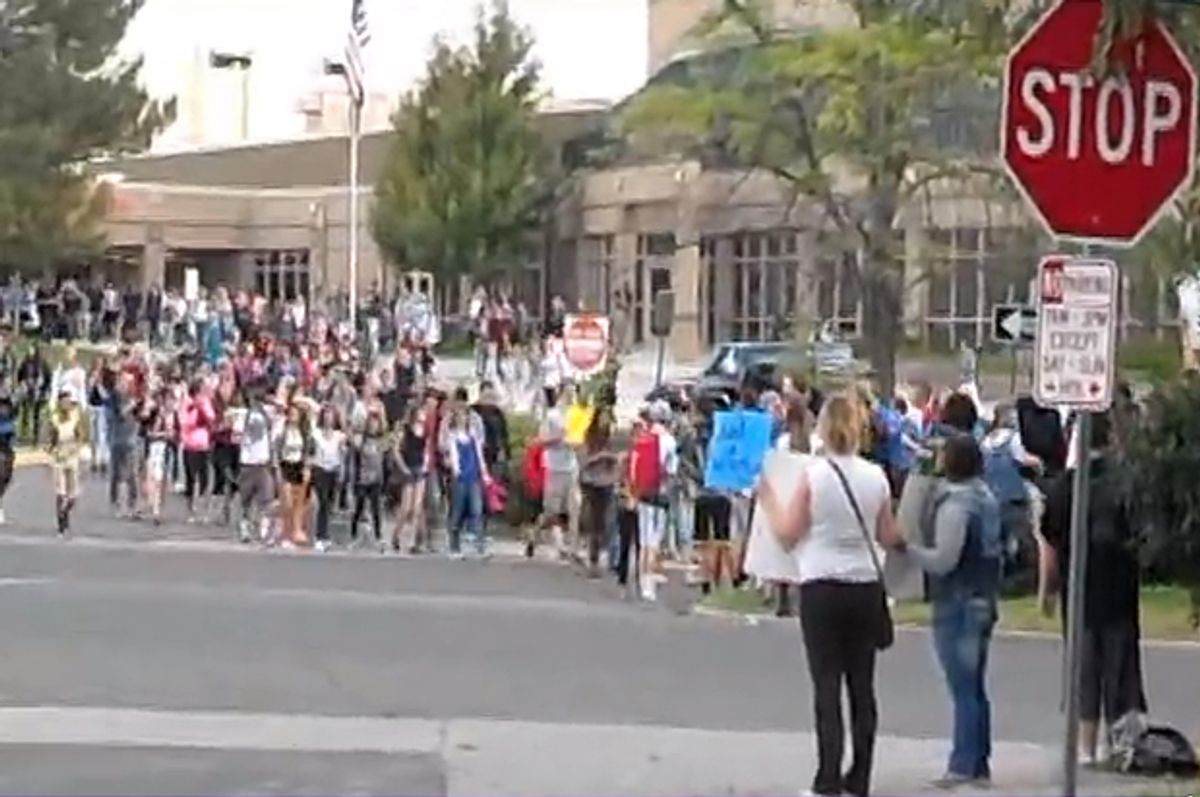Believe it or not, there are still people in the world who believe a high school education should be more than a run-up to getting in decades worth of crushing debt, or mere job training for skills that will make a person a diligent, unquestioning worker bee. And some of those people, thank God, are high school students.
In a righteous act of defiance, Colorado students this week walked out of at least seven schools to protest a proposed new curriculum for Advanced Placement U.S. history that would advise, "Materials should not encourage or condone civil disorder, social strife or disregard of the law." The kids have got your civil disorder, right here.
County school board member Julie Williams submitted the curriculum review proposal earlier this year. On her Facebook page, Williams claims she is "offering a truthful guide to our educational system," and in a statement, she says that she's advocating for "the opposite" of censorship, claiming the AP U.S. History curriculum "rejects the history that has been taught in the country for generations. It has an emphasis on race, gender, class, ethnicity, grievance and American-bashing … I believe all children graduating from an American school should know 3 things: American Exceptionalism, an understanding of US History, and know the Constitution." But as Griffin Guttormsson, an Arvada High junior, told the New York Times Tuesday, "You can’t erase our history. It's not patriotic. It’s stupid."
While history always has a point of view, students don't need to be spoon-fed propaganda either. Yet the fight for a more balanced perspective, one that doesn't preach the gospel of exceptionalism, has been raging for years. In 2010 the Texas Board of Education approved a curriculum "stressing the superiority of American capitalism, questioning the Founding Fathers’ commitment to a purely secular government and presenting Republican political philosophies in a more positive light." And similar battles are fought each school year over sex education and evolution vs. creationism. What's highly gratifying is that students are recognizing their stake in the way their schools are run and piping up.
In Camden last spring, students staged a walkout to protest a stunning 206 teacher layoffs. Earlier this month, students in three Newark high schools walked out – and were joined by parents -- to protest, among other issues, the state's baffling enrollment system. It was an action Gov. Chris Christie unsurprisingly said was driven by "selfish adults." And in Utah this week, approximately 100 students staged a walkout after a dozen female students were turned away from a dance for alleged dress code violations.
I'm very lucky that my older daughter, a freshman in high school, is currently reading "The Absolutely True Diary of a Part-Time Indian," a book still banned in many schools, and that over the next few years her school is partnering with Global Explorers to do outreach and community-based student travel projects. It's a big world full of diverse opinions and lifestyles. That's what I want my kids to experience and understand, so they can make up their own minds. But what gives me hope is when students who are facing much more restrictive environments stand up and say, do better. Education is not indoctrination – and that's a lesson that, encouragingly, teens like the ones in Colorado and New Jersey and Utah are figuring out on their own. Sometimes, you've got to walk of school to show the world what you've learned.

Shares